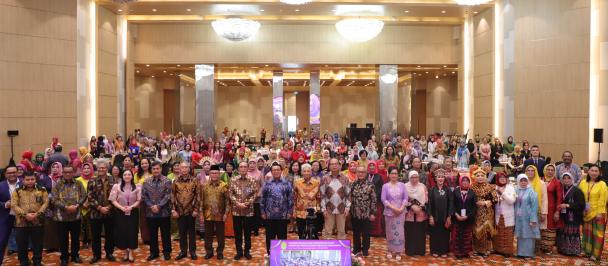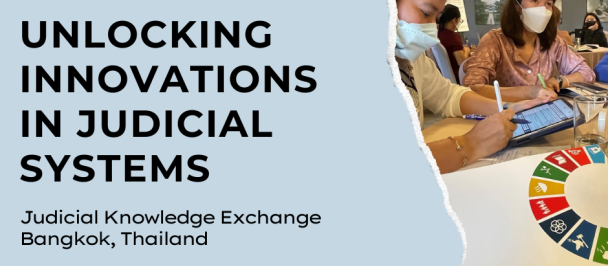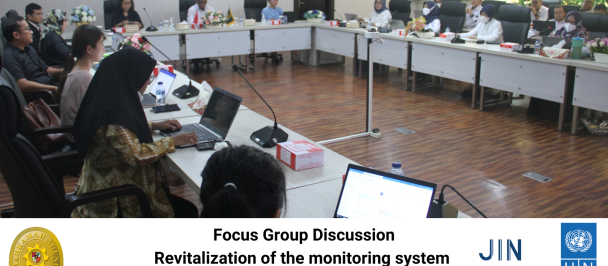Move Inward to Move Forward: Digital Innovation as an Enabler of Judicial Integrity in Indonesia
July 17, 2023
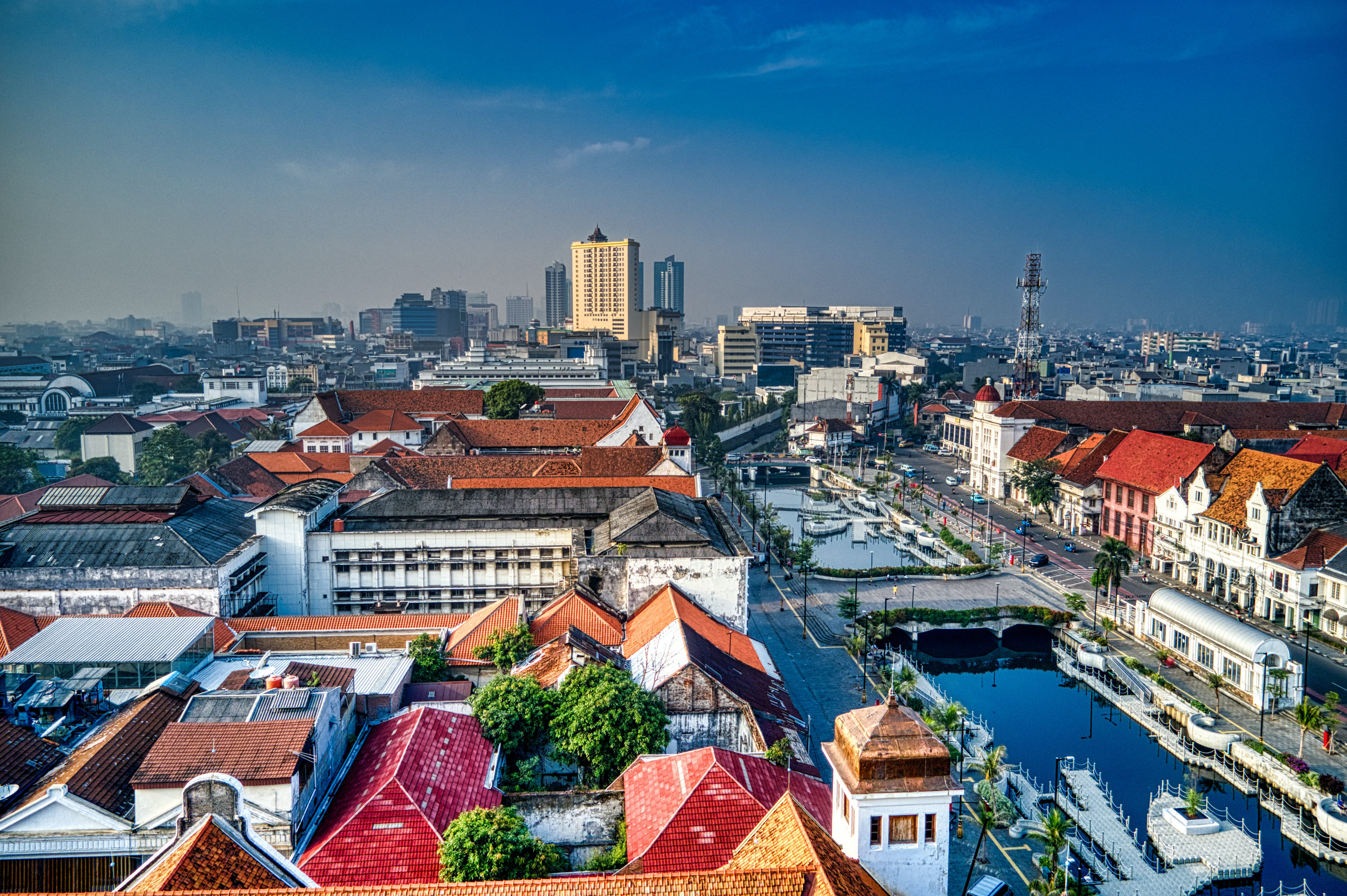
Over the past decades, the world has witnessed the global movement advancing integrity, transparency, and accountability in the public and private sectors. Nonetheless, democracies are still reeling from the shock of Panama and Pandora papers, and countries failing to address their corruption problems worsen COVID-19's effects in an already unstable world.
In what might look like a gloomy scenario, the advancement of digital transformation in the Fourth Industrial Revolution era undoubtedly brings hope in advancing digital governance globally.
Indonesia is no exception. As one of the first countries in Southeast Asia to have implemented the E-Court system, Indonesia’s achievement in harnessing digital technologies to enhance court excellence is well recognized, re-emphasizing the commitment to promoting the Bangalore Principles, a set of core values for the ethical conduct of judges. UNDP and the Supreme Court of Indonesia have a long-standing collaboration in promoting access to justice through digital transformations in line with the International Framework of Court Excellence (IFCE), the quality management system which helps courts improve their performance.
UNDP's milestone in improving judicial excellence in the country goes back to 2009 with the birth of SIWAS as the first public digital whistleblowing system, upgraded into a web-based monitoring system in 2016.
As part of the Judicial Integrity Network in ASEAN project, UNDP has provided technical support to the Supreme Court in revitalizing the monitoring system since 2022, with generous support from the U.S. Department of State's Bureau of International Narcotics and Law Enforcement Affairs (INL). The joint initiative between UNDP and the Oversight Body of the Supreme Court of Indonesia (BAWAS) designed more gender-responsive and disability-inclusive complaint-handling mechanisms with new features that cater to vulnerable groups' different needs.
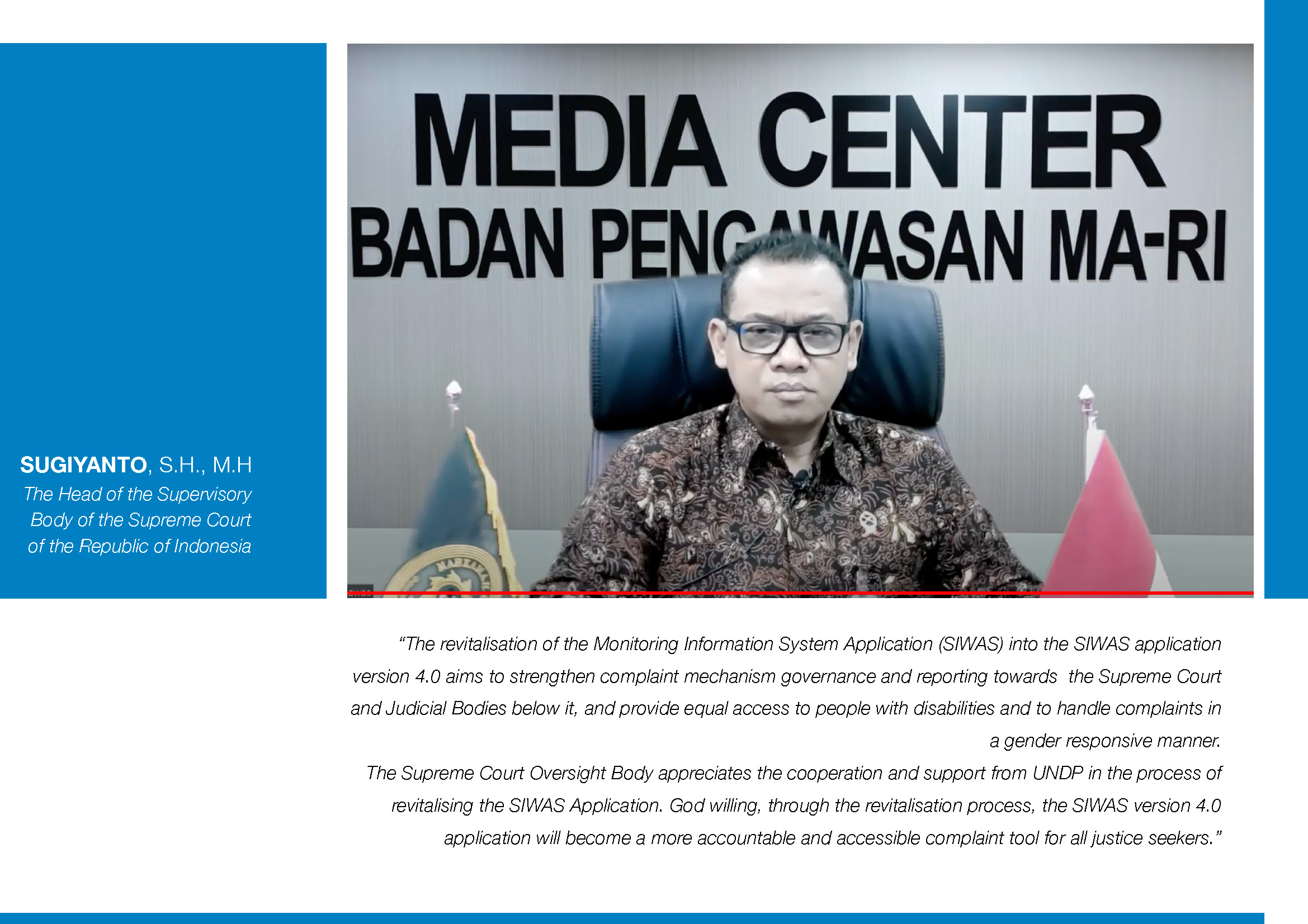
Through comprehensive training sessions and inclusive dialogue, court personnel better understood marginalized communities' unique needs and challenges. As a result, judicial officers now understand the "Leave no one behind" principle and its application in their daily decision-making processes.
Another notable outcome of the inclusive dialogue, or Focus Group Discussions, was the developing of a user-friendly online complaint submission system. Through these discussions, judges and community members recognized the need for a more accessible platform for individuals with disabilities. As a result, SIWAS collaborated with technical experts and disability rights advocates to design and implement an inclusive online complaint portal. This innovation allows persons with disabilities to submit their complaints more efficiently and ensures that the system is compatible with assistive technologies, such as screen readers and page magnifiers. Now, individuals with visual impairments or other disabilities can navigate the website independently, giving them equal access to justice and enabling their voices to be heard.
The revitalization of SIWAS, a stepping-stone in fostering court excellence, guarantees impartial and gender-responsive judicial services to citizens, particularly those lacking access to justice, contributing to achieving the Sustainable Development Goal 16 on Peace, Justice and Strong Institutions.
Although digital innovation is actively enhancing the effectiveness and efficiency of the Indonesian judicial system, challenges still need to be addressed, particularly on data privacy and whistleblower protection, the ultimate line of defense for safeguarding the public interest.
The intersection of digital transformation and integrity relies on a sound normative umbrella that guides complaint handling practices. Therefore, continuous collective efforts in promoting inclusive policy development while upholding gender equality principles and the rule of law are imperative to provide inclusive justice for all.
Nihandini Santi
Technical Officer for Peace and Justice, UNDP Indonesia
Stefano Pighin
Communication and Partnerships Officer, UNDP Bangkok Regional Hub
Qinyi Liu
UNDP Indonesia's Trainee at Justice Team

 Locations
Locations